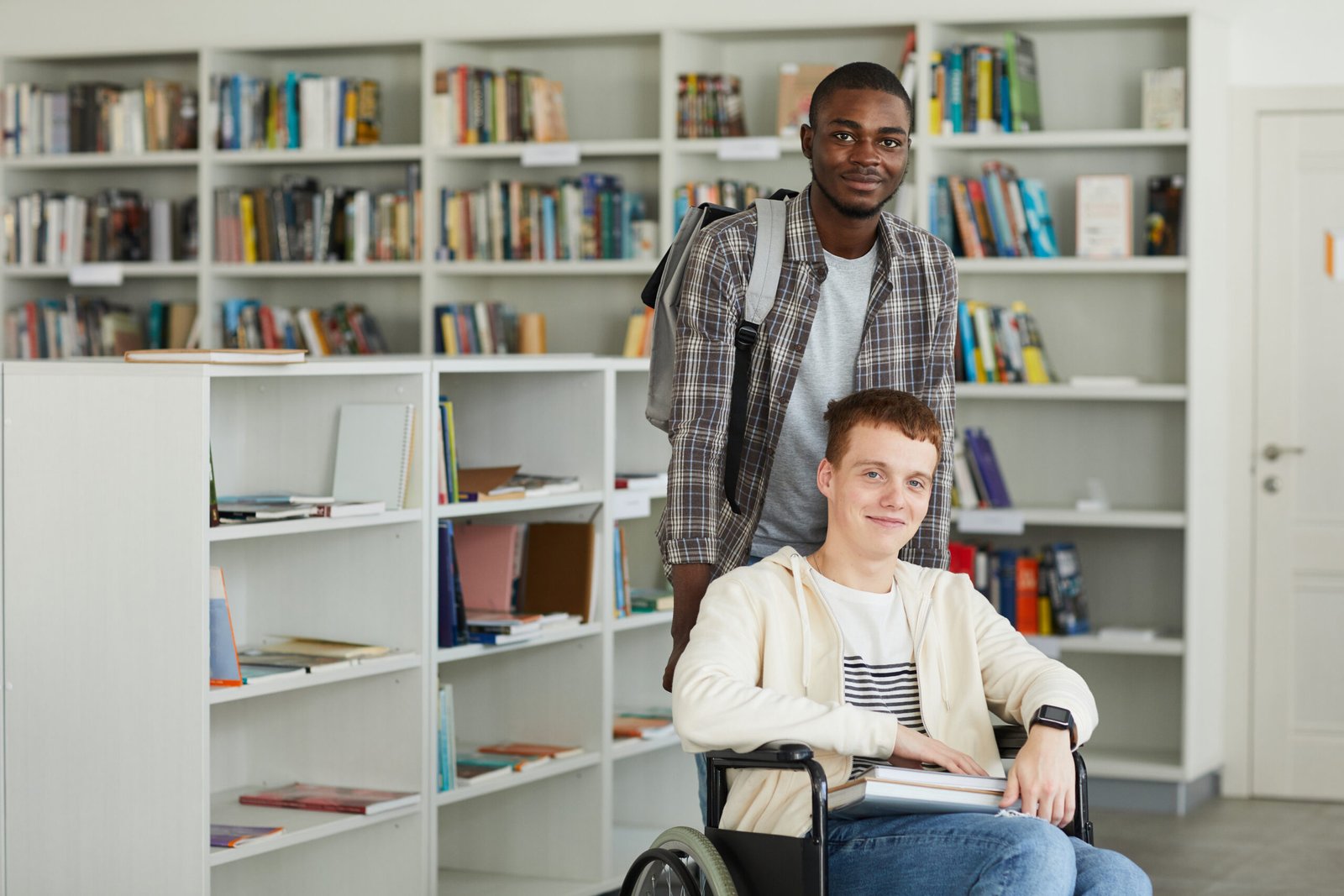Every student should have the same chances to do well in school. For kids with disabilities, reaching their academic goals might need extra help. Accessibility services and accommodations help close the gap, making sure that everyone has the same chances and creating a welcoming place to learn.
Understanding Accessibility Services
Accessibility Services (AS) is the name of the office or department that most schools have set aside for this purpose. This office helps students with disabilities in many ways and is a key hub for them. Here are a few important things that an AS office does:
- Registration and Needs Assessment: Students with verified disabilities can go to the AS office to sign up. The office figures out what a student needs by looking at their paperwork and tests and then making the right changes.
- Accommodation Implementation: The AS office works with teachers to make sure that approved accommodations are made. This could mean giving students different ways to take tests, services to help them take notes, or more time on exams.
- Assistive Technology: Helpful technology that can make learning easier for students can be found in the AS office. Screen readers for students who are blind or speech-to-text tools for students who have dyslexia are two examples.
- Advocacy and Support: The AS office helps kids with disabilities all the time and speaks up for them. They can help students deal with problems, handle concerns, and make sure they feel like they have power and are part of the school community.
Benefits of Accessibility Services
Accessibility programs are very important for helping students do well in school. They help kids with disabilities in the following ways:
- Equal Access to Education: By getting rid of obstacles that get in the way of learning, accommodations level the playing field. Students can do well on their homework, tests, and extracurricular activities if they get the right help.
- Improved Academic Performance: Students can focus on learning and show off their real academic potential with the help of accommodations that meet their specific needs. Having less stress and anger can help you get better grades and enjoy school more.
- Increased Confidence and Self-Esteem: Disability-friendly services help students feel more independent and able to rely on themselves. Students feel respected and able to take charge of their education when they are in a place that meets their needs.
- Development of Self-Advocacy Skills: Students learn important self-advocacy skills when they register with the AS office and ask for accommodations. They learn how to say what they need and how to use support tools, which gets them ready for future projects.
Types of Accommodations

The exact help that is given will depend on the disability of the student. In any case, here are some common ones:
- Testing Accommodations: Extra time on tests, a place to test without distractions, the ability to use a computer or spell-check, or different types of tests (such as audio recordings or speaking exams).
- Instructional Materials: giving things in formats that can be used by everyone, like Braille, audiobooks, or bigger print.
- Assistive Technology: Apps for taking notes, screen readers, and speech recognition software are some examples of software.
- Support Services: people who can take notes, translate for sign language users, or act as peer teachers.
How Important It Is to Work Together
For assistance for students with disabilities to work well, many people need to work together. Here are some ways that different groups can help:
- Students: The students play a big role in the process. They should go ahead and register with the AS office and be clear with teachers about what they need. It is important to be proactive about asking for help.
- Accessibility Services: The AS office is very important for making sure that contact is easy, services are coordinated, and accommodations are used correctly.
- Faculty Members: The faculty is very important for making the classroom a welcoming place for everyone. They should be open to requests for accommodations and work with the AS office to make sure they are carried out smoothly.
- Administrators: It is the job of school officials to make sure that the AS office has all the resources it needs and that accessibility is a top priority throughout the whole institution.
Moving Forward: Moving Towards Inclusive Education
For a learning setting to be truly inclusive, it needs to have accessibility services and accommodations. Schools can give students with disabilities the tools they need to do well in school and reach their full potential by encouraging collaboration and raising understanding. Here are some more things to think about before going forward:
- Universal Design for Learning (UDL): All students, even those with disabilities, can benefit from using UDL concepts in the way courses are made. This framework is all about giving people different ways to connect, represent, and act, so that they can learn in the way that works best for them.
- Faculty Development: Giving teachers training and tools on disabilities and good ways to make accommodations can help them help students with a range of needs.
- Building a Culture of Inclusion: Some things that can help students with disabilities feel like they fit on campus are making it a place where everyone is welcome and everyone is valued.
When schools work together, they can get rid of obstacles and make sure that every student, no matter how smart they are, has the chance to do well in school.
